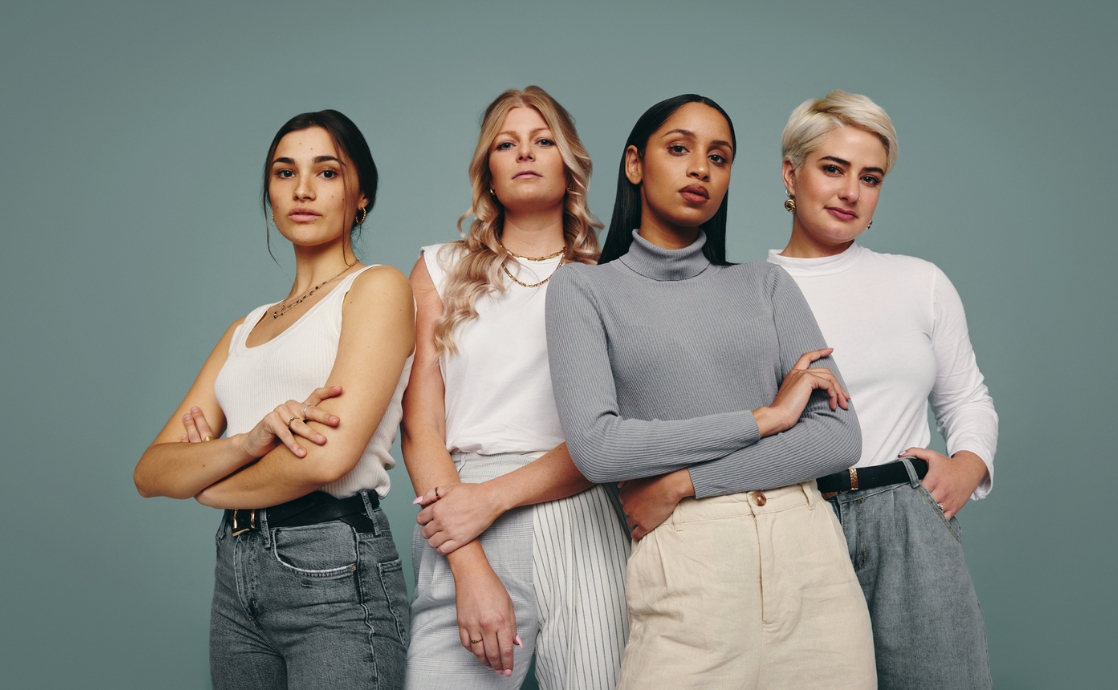The views expressed in our content reflect individual perspectives and do not represent the authoritative views of the Baha'i Faith.
I wonder what men see when they look at a woman? Do they see a mother, sister, daughter, wife, or friend? Or do they see a sexual object — a mere collection of parts?
The Baha’i Faith raises the station of women, because the Baha’i teachings say that God created both men and women as innately noble beings. In light of this belief, the degree of honor and respect women receive is not defined by what we wear or how we look, but by who we are.
In a 1912 interview with a reporter from the San Francisco Examiner, when asked what he thought of American women’s fashions, Abdu’l-Baha said:
We do not look upon the dresses of women, whether or not they are of the latest mode. We are not the judge of fashions. We rather judge the wearer of dresses. If she be chaste, if she be cultured, if she be characterized with heavenly morality, and if she be favoured at the Threshold of God, she is honoured and respected by us, no matter what manner of dress she wears. We have nothing to do with the ever-changing world of modes. – The San Francisco Examiner, 4 October 1912, reprinted in Star of the West, Volume 3, p. 206.
Unfortunately, our culture hasn’t reached that point yet. The 2019 fashion trend is to now wear plunging necklines down to the navel. I can’t turn on the television without seeing women sexualized, degraded, and objectified to sell cologne, cars, food, clothing, you name it.
Our media and entertainment industry tends to notice us women only for our physical beauty – not for our intellect, character, talents, or morality. I have always identified as a feminist because I want all women to possess the same rights as any man. One of these rights – the right to be loved, accepted, and valued for who we really are – reflects our deepest spiritual qualities.
Our culture trains us to accept men for their physical appearances, personalities, and achievements. And, although this is far from ideal because this brings disproportionate focus to men’s material strengths rather than their spiritual qualities, it subjects women to the harmful idea that their worth arises solely from their appearance. Society puts women on constant display, monitoring their physical appearance, and allows men to constantly define, redefine, and promote what the “ideal” women should look like.
Baha’u’llah warned against this tendency in the following quote. His use of the term “men” refers to humanity:
The choice of clothing and the cut of the beard and its dressing are left to the discretion of men. But beware, O people, lest ye make yourselves the playthings of the ignorant. – Baha’u’llah, Tablets of Baha’u’llah, p. 23.
As women, we’re told to shave, wear lipstick, line our eyes, shadow our eyelids, powder our faces, wax our eyebrows, paint our nails, straighten our hair, wear extensions, show cleavage, accentuate our curves, and wear heels – all while maintaining a pleasant, subservient demeanor. If we don’t comply, even our fellow women often shame us.
Some women have looked down on me for calling myself a feminist. They have looked at me disapprovingly for not shaving or waxing. Older women have told me to wear makeup to attract a man, or to lower the zipper on my blouse if I see a guy approaching. It hurts immensely to be called a lesbian for not being flirtatious with every man that pays me attention, or to be called a prude for vowing to be chaste until marriage – and it becomes even more disheartening to see this objectification come from women. When did modesty and chastity become something to look down on?
Does that define what Baha’u’llah meant by becoming the “playthings of the ignorant” – to be molded only by the opinions of others? As a Baha’i, I was raised to uphold modesty and decency in what I wear and how I act. The Baha’i writings say:
Modesty, purity, temperance, decency, and clean-mindedness, involves no less than the exercise of moderation in all that pertains to dress, language, amusements, and all artistic and literary avocations. – Shoghi Effendi, The Advent of Divine Justice, p. 30.
The hypersexualized entertainment industry takes its toll on us in more ways than we realize. According to psychologists Barbara Fredrickson and Tomi-Ann Roberts, women, to varying degrees, internalize the public’s sexualized view of them and view themselves as objects. As a result, we women frequently monitor our appearance, and this increases our anxiety about how others will view and evaluate us. This self-objectification starts early in elementary school and leads to body dissatisfaction, body shaming, depression, and eating disorders. I remember listening to a classmate in fourth grade complain about how fat her thighs were, and trying to dissuade another friend in middle school from trying to vomit after eating.
According to the Dove Self Esteem Project, only 11 percent of girls worldwide would call themselves beautiful, and 60 percent of girls avoid participating in activities because they’re concerned about the way they look. One-third of all 6-year-olds in Japan have low self-confidence about their bodies, and 81 percent of 10-year old girls in the U.S. are afraid of being fat, according to UNICEF.
Body shaming even affects our mental performance! One study in the Journal of Personality and Social Psychology found that women performed worse on math tests after they tried on a swimsuit compared to after they tried on a sweater. This lowered confidence in their bodies led to a lowered confidence in their intelligence. Psychologists Bonnie Moradi and Yu-Ping Huang have also found that this self-objectification is also linked to decreased engagement in activities (or flow) and difficulties in task performance among all female demographics.
Only education can change the trajectory of the next generation of children. Children will see themselves positively in their own eyes and in society when their mothers, daughters, sisters, and aunts demonstrate a healthy self-image. What the adults value, the children will value. What the adults focus on, the children will focus on. What the adults accept or don’t accept greatly influences what the children will allow or disallow. So, let’s not compliment each other when we wear makeup, if we fail to notice each other’s beauty without it. Let’s not praise each other for the clothes we buy, if we never affirm each other’s unique qualities that really do make us special. Let’s create a culture that values each other’s souls, and not what the media (or society) influences us to.
















Comments
Sign in or create an account
Continue with Googleor